A Conversation with Alon Schwarz (TANTURA)
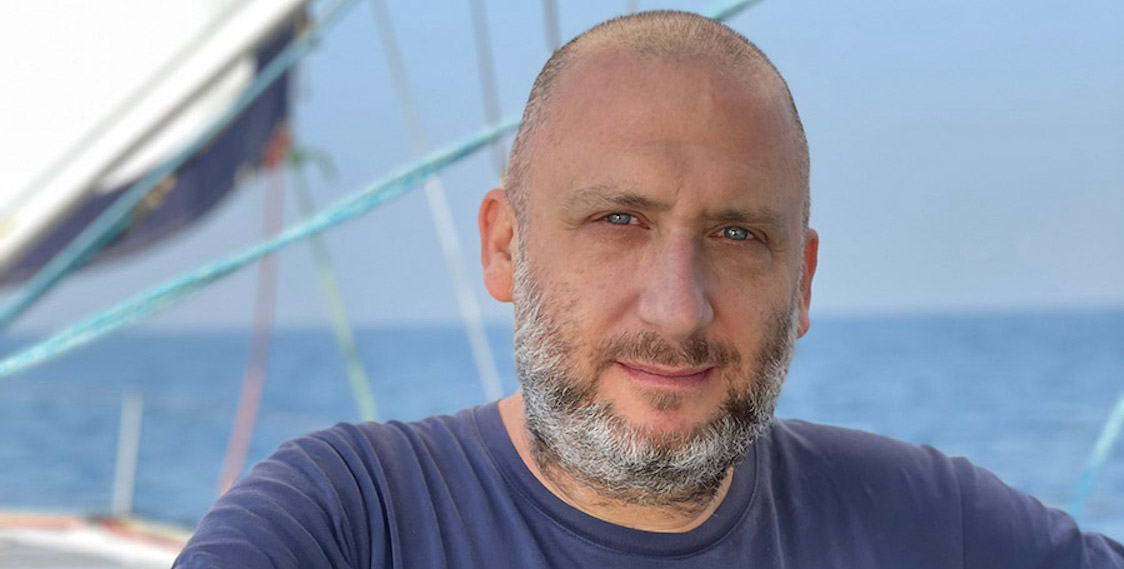
Director Alon Schwarz (Aida’s Secrets) just premiered his new documentary, Tantura, at the 2022 Sundance Film Festival. I reviewed it as part of our coverage, and before the festival even started I had a chance to chat with him by Zoom. The movie discusses the complicated and often-violent founding of the state of Israel, focusing on the turn-of-the-millennium scandal that erupted over the master’s thesis of a would-be truth-teller, Teddy Katz. His investigation into the events that took place during Israel’s 1948 War of Independence (which Palestinians call the “Nakba,” a word meaning “disaster”) in and around the since-erased Palestinian village of Tantura uncovered disquieting facts that strike at the heart of Israel’s identity as a righteous nation. Schwarz’s documentary similarly pulls no punches. What follows is a condensed digest of our conversation, edited for length and clarity.
Hammer to Nail: To start, please tell me about Reel Peak Films, this production company that you have with your brother, Shaul.
Alon Schwarz: So, it’s really Christina [Clusiau] and Shaul’s production company. I work with them, but it’s their company. It’s based in New York, and we try to do high-end cinematic documentaries that are thought-provoking and often controversial. We think that’s what the best movies are made of.
HtN: I don’t disagree. Certainly, Trophy, which Shaul and Christina directed, had its share of controversy. And Shaul co-wrote this new film with you, correct?
AS: Yes. Shaul and Halil. Halil Efrat.
HtN: How did you find your main subject, Teddy? I understand that you were working on a different story when you came across Teddy Katz. How did that happen?
AS: I was with Shaul in Greece where we were having a brothers’ brainstorming vacation and I told him that I really wanted to make something political about Israel and he told me, “Come to America to make films here, with us.” And I said, “Before I come, I want to do another film in Israel and I want to do a political piece.” And we were thinking about doing a film about the NGOs in Israel that are trying to fight the occupation and the way the government and the press are making them out as traitors. And I started filming that.
And at some point, I wanted to learn the history of this organization called Breaking the Silence. Before they were an organization, they were just people who went against the narrative of the state. And so I googled them and I found this story about Teddy Katz and it looked strange to me that someone who went and recorded so many hours of footage would then lie about everything. He got a grade of 97 on his thesis and then after a year and a half it got published and then they took him to court and they took it all away from him. It just made me…(shrugs)
So I called him, and he was very nice, said, “Come tomorrow morning.” And I came, not in the morning, but later, and I saw this broken man. A physically broken man, but with a glitter in his eye, who wanted to tell his story, and he let me have the tapes and all the folders and all the papers. And I knew I was on to something, or I hoped I was on to something, if it were true. And I went and started listening to the tapes. It was a process: we digitized everything, we cleaned everything up. A lot of these tapes were recorded terribly, on a very bad tape recorder, the cheapest thing you could buy back then. But we started listening, and when I started listening, it was mind-blowing. Only a little fraction of it is in the film, but it is just mind-blowing. So I realized we had a huge story here.
HtN: It does seem amazing that there would be audio evidence of the very things that Teddy was writing about, and yet somehow, that couldn’t save him.
AS: Yeah.
HtN: That the official push to discredit him was so strong, that evidence be damned! We’re now seeing that more and more, of course, in this country with the rise of Donald Trump in 2016, to just dismiss things that are inconvenient as “fake news.”
AS: Yes!
HtN: Obviously, Israel, like any other country, has a vast array of political movements and opinions within it. Nevertheless, it does seem like the myth of how the country was founded—or the legend or historical record or however you want to see it—is a tough one to challenge. How do you think your film is going to be received?
AS: Oh, I think people are going to challenge me, my honesty. I’m sure of it. Some critics are going to love the film and some are going to say that I’m a Teddy Katz, and the way they mean that is bad. Unfortunately, it’s a subject that has controversy around it. I have no doubts in my mind about what happened when Israel was founded, not at the atom level, but at the generic level. After three years of studying not only the Katz tapes but also general witnesses—I interviewed a lot of people—I understand better the reality. We didn’t grow up on this reality; no one ever told us this reality, we’re not taught it in school.
And I’m happy for myself, although it was a psychologically traumatizing experience, I have to tell you. It’s not only what you hear, but also the shaking of the foundation of everything you know. Psychologically, that’s hard. But I’m happy: I always want to know the truth. And I hope that some people in Israel may open their eyes. And the idea is not to say that we shouldn’t have a Jewish state. I’m a Zionist and I believe that Zionism has a good part to it and a bad part to it and I think we need to grow up as a society. We need to start understanding our past. How can you not understand your past if you want to go forward and have a good future?
We discredit the story of the other side as being pure fantasy when the fact of the matter is that it is not pure fantasy! Some of these Arabs who live right next door, who some people in Israel consider as enemies, have stories from their grandparents that speak to horrific acts that happened in ’48. And these things happened! They didn’t just leave because one day they decided to leave. They left because somebody made them leave. And we as a country—a very smart country—told a story which was not 100% accurate. And if we, as a society, want a future of hope, we must recognize that there’s another narrative here. And both narratives can live and must live in this world and we have to find a place to accommodate these two narratives. That’s something I get today that I didn’t get before.
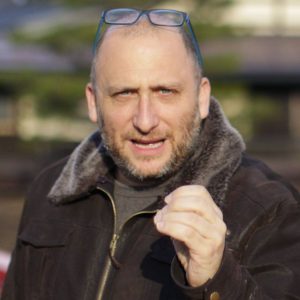
Filmmaker Alon Schwarz
And I’m all for Jews having their own country and I want two states. And I don’t think that if we admit that a massacre happened in Tantura and other places that tomorrow morning you apply the right of return, everyone returns to Tantura and you throw all the Jews back to Europe. That’s not what it means. It’s not an existential threat for us to admit that our country, like almost every country in the world, had a founding period which was full of blood. America destroyed Indians. Annihilated them. Australia did it to the Aboriginal people and New Zealand did it to the Maori. I flew to a festival in New Zealand and this Maori guy acted as translator for the Q&As. Why? Because the state respects the Maori population and says, “You’re the original population and we admit our wrongdoings.”
And we in Israel must acknowledge the same. There’s no other way for us to move forward and have peace without this. And this is something I did not understand three years ago. So that’s the point of the movie. And the people who will discredit me will say, “Oh, you weren’t accurate here and you didn’t edit there,” and that’s what they did to Teddy Katz and that’s how people are silenced. Silencing is a mechanism that happens everywhere, of putting out a lot of information so the main thing isn’t seen. It’s like smoke. You put out a smokescreen, and that’s how silencing works. In America, in Israel, there are whole institutions where all they do is silence. I’m sure they’ll try to silence me like they did others, but I think the movie speaks for itself. A lot of people are going to see it and understand the bigger picture. I hope!
HtN: I hope so, too. It’s at Sundance, after all. So, what sits at the former site of Tantura today? We see a little bit of it in the film, but…is it a vacation spot? What is there now?
AS: So, in the general area, north of where the village of Tantura was, is Kibbutz Nahsholim.
HtN: And you interview people from that kibbutz in the film.
AS: Yes. And they were the first ones that came and lived in the Arabs’ houses and then founded the kibbutz just to the north. A little bit east of that is a moshav which I did not put in the film, called Moshav Dor. A moshav is like a kibbutz, only a little less socialist. And both this moshav and the kibbutz have, hands down, the nicest beach in Israel, and they both have touristic areas. Nahsholim has a hotel—a fancy hotel—and Dor has bungalows, which stand where the village stood. And then there’s the parking lot, which, as you know, is in the film. Part of it was houses and part of it was a graveyard in a field where the mass grave is, or was.
HtN: So, those white structures we see are the…
AS:…tourist bungalows.
HtN: Got it. You can certainly understand why it would be a coveted spot. It looks beautiful.
AS: It is!
HtN: I thought it was interesting how you showed the tapes, which are so essential to the story, being played. You have a number of different visualizations of how they are listened to. Could you describe how you came up with those?
AS: The problem with audio is that you need to cover it with some visual. We’re not doing a radio show here. So, how do you do it? And part of that was very obvious: you recreate the tapes playing. In a digital world, it’s not as if I put the microphone up to the tape. As I said, we first digitized everything and we listened to them in the lab. We were able to listen to stuff that Teddy Katz and the transcribers and the court had never heard, because we have modern technology today. And then we recreated some of it, but the idea of having some of the elders listen to it came up pretty early. I think that’s very strong, to see their reactions.
When I worked with these older people, I used several techniques to help them remember and come forward. One was listening to what their friends said. “You heard what your friend said, now what do you say?” I showed them pictures of their buddies. It was a huge amount of research. And I told them, orally, what others told me. “Do you remember? Do you not remember?” So it was much more than the visualization of tapes; it was a whole technique of how to interrogate these people in a good way, to make them comfortable enough to either tell you consciously or to let it slip out of them.
HtN: And when you say you “recreated” something, you didn’t recreate the audio, right? You just mean the playing of the tapes.
AS: No, no! It’s the real audio. But the tape isn’t actually rolling like that when we play the audio for them in the movie. It’s coming from a digital source. But all the audio recordings are the original audio recordings that Teddy Katz recorded. They’re edited for the purposes of the film but it’s true to what was there and it’s the real voices, not recreated anything. Those are the real witnesses, and a lot of them are dead now.
HtN: I understand. You just improved the audio quality so that we could hear it better. So, how did you choose the academics who appear in the film?
AS: I have four. Two are pro-Teddy Katz and two are against. Ilan Pappé is a very well-known historian, very controversial in Israel, and very hated in Israel because he says what nobody wants to hear. I respect him, I have to say. I’m not a historian, I’m not a historical critic, but I think that in Tantura Ilan Pappé was honest. I don’t know about other stuff. And he was involved. They were all involved. So, Ilan Pappé was assisting Teddy; he wasn’t his instructor, but he supported him. And when the case broke, he was almost the only one who said, “You know, Teddy Katz is right.” And I thought he came off well in the film. Then, there is [Avner] Giladi, who was the head of Teddy’s program at the university, and supportive.
And then there is Professor [Yoav] Gelber, a very well-respected professor in Israel who totally discredits, and was very active in fighting, Teddy Katz. And was fixated, I think, on proving that there was nothing there. And then there was [Yossi] Ben-Artzi, who, like Gelber—though it’s not in the film—was a military guy. There’s a military connection there. And Ben-Artzi became, during the affair, the Dean of Humanities, and was very active in academically prosecuting the case. So, that’s how I chose them.
HtN: I thought you had a nice array of voices, and I also like how you gave the older survivors a chance to express themselves. Is there any more of the interview with the judge. Drora Pilpel, who presided over the court case, that didn’t make it into the film, where she perhaps comes to terms with the fact that she should have allowed more testimony? I mean, we see her listening to the tapes…
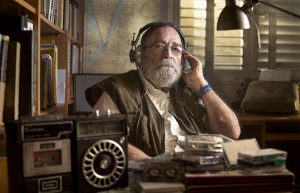
A still from TANTURA, featuring Teddy Katz
AS: I think that’s one of the best scenes in the film. My favorite, where she’s next to the dog, Fifi. (laughs) It’s pure luck, you know, those moments that you can’t stage. I think she understands what happened there. She might not be fully aware. They listened to one-and-a-half tapes that were brought there, but they didn’t listen to the mass of evidence, and they looked at the transcripts, which were limited by nature, because you don’t hear intonation. The transcription may be very clear, but you lose so much information!
So, I don’t think she could have known, but I think she had some kind of sense, at some point, even if she didn’t tell me, that maybe there were certain things going on. I don’t know. I’m just speculating. But I can tell you one thing, that when I folded the cameras … and it always happens when you fold the cameras, that you have this small talk, and sometimes you still film it, but sometimes the camera is already folded … and I asked her, “So, what do you think?” And she looked at me and said, “I think it’s too early to talk about the Nakba.” (laughs) And I wish I had that! But I don’t have it.
And also, another funny anecdote, when I was setting up the camera for her interview, she put the dog down. And I said, “No, no! Please put the dog on you, it’s very nice in the frame.” And she looked at me and said, “You’re going to turn me into Dr. No, right?” From James Bond. And I said, “You totally got me!”
HtN: Well, Alon, thank you so much for talking to me and for making the film. I hope that whatever blowback comes your way just rolls right off of you.
AS: Thank you so much!
– Christopher Llewellyn Reed (@ChrisReedFilm)
2022 Sundance Film Festival; Alon Schwarz; Tantura movie interview








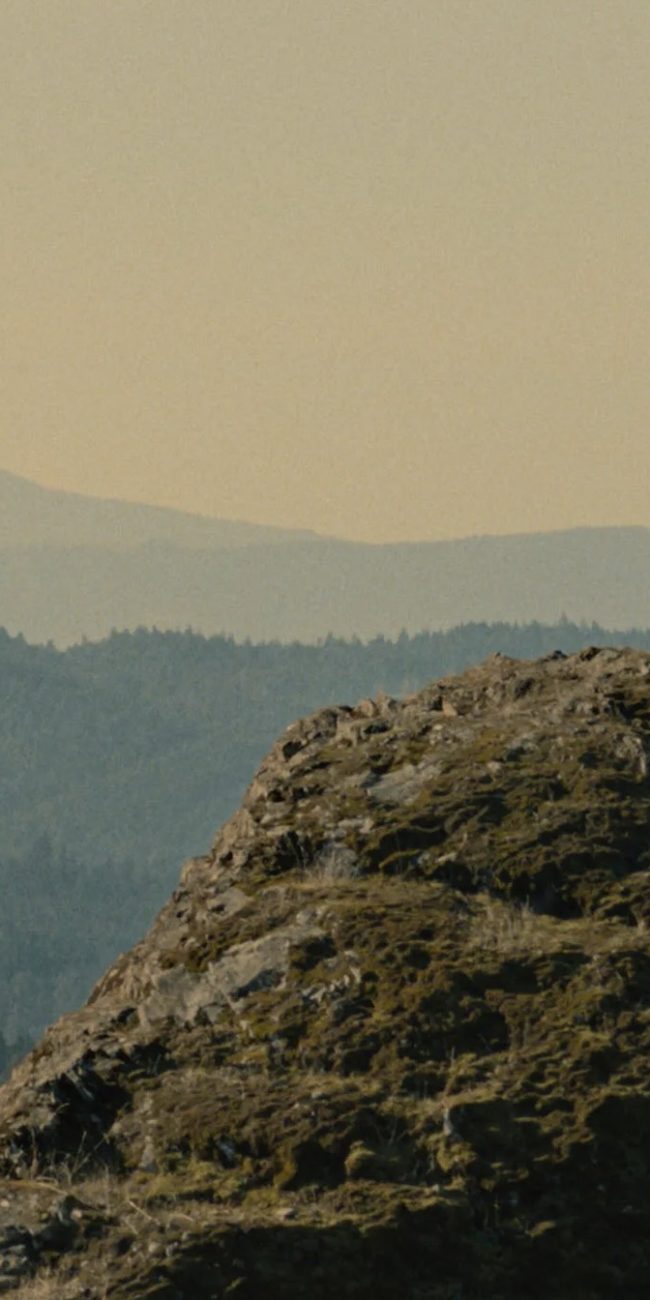
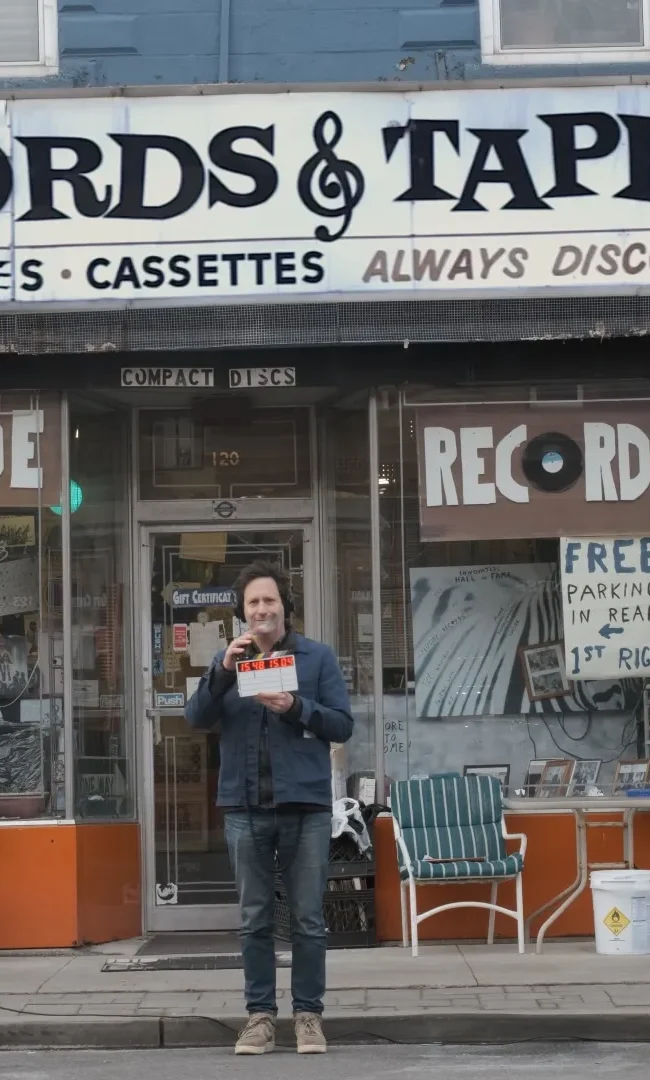


Muayad Ali
I am a Palestinian originally from Al tantura, my family has cleansed 1948 after a catastrophic massacre. I would like to see the film but don’t know how to get a copy.